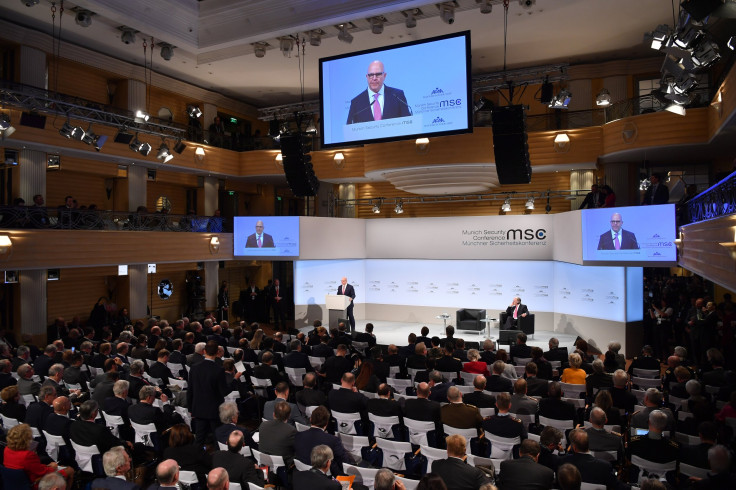US Warns About A 'Critical Time' For 'Humanity' At Munich Security Conference

It is a critical time for humanity, said United States National Security Adviser H.R. McMaster at the 54th Munich Security Conference in Germany.
According to a report by VOA, the U.S. National Security Adviser H.R. McMaster told the delegates of other participating nations Saturday, “This year we meet at a critical time for our nations, and indeed for all humanity.”
“We face a range of common threats. Rogue regimes that already imperil international security in the Middle East and northeast Asia,” he added.
McMaster, in an indirect reference to China, said the nations that still give economic assistance to North Korea should respect international sanctions. North Korea’s nuclear program was the overarching theme throughout the conference, the report said.
Japanese Foreign Minister, Taro Kono, also supported McMaster's stance and stated that the international community must be careful about being blinded by North Korea’s open diplomacy during the Pyeongchang Winter Olympics in South Korea.
McMaster also aimed his statements at Syria and Iran and said, “We know that Syria and North Korea are not the only rogue states developing, using, spreading dangerous weapons. Now is the time to address serious flaws in the Iran deal and counter Iran’s destabilizing activities, including its development and proliferation of missiles, and its support for terrorist proxies and militias that fuel destructive conflicts across the greater Middle East.”

Karin von Hippel, the director-general of Royal United Services Institute, London, said the U.S. was careful about the developing complications of the Syrian conflict.
“Not just because of the U.S. and Turkey potentially facing each other off, but Russian troops are there, other Gulf country troops are there, the Israelis have been drawn in recently, and of course the Iranians are there. So that really is a very dangerous theater where one little mistake could escalate in really frightening ways,” said Hippel.
Haider al-Abadi, the prime minister of Iraq, stated that the Islamic State terrorist group, also known as Daesh, was also a threat.
“We intend this year to make it the final year for the existence of Daesh in Iraq. The task which is facing us is stabilization and reconstruction of the areas that have been occupied and destroyed by Daesh. This is a huge task at a time when our oil income has dropped drastically,” said al-Abadi.
The three-day meeting was perceived to be more important following reports about the indictments made by U.S. Special Counsel Robert Mueller and the Department of Justice against Russian organizations for interfering in the presidential elections in 2016. Russian Foreign Minister Sergey Lavrov described these allegations as “blather” at the conference.
The issues in the Middle East would probably be the focus Sunday, the last day of the conference, as the prime minister of Israel, Benjamin Netanyahu, and the foreign ministers of Iran and Saudi Arabia will join the discussion.
© Copyright IBTimes 2024. All rights reserved.






















